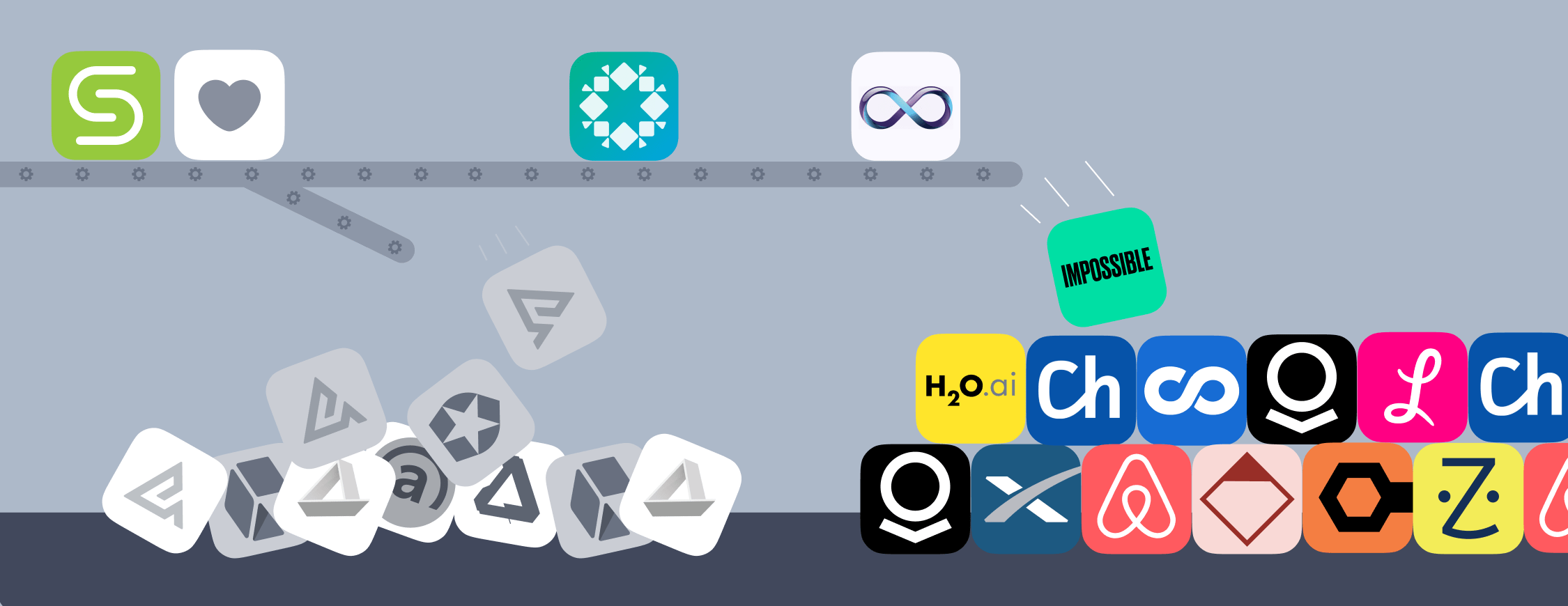
LESSON 3 · 3 min read
Pre-IPO with Dizraptor
Let's take a look at what companies get on the Dizraptor platform, how to join an investment and how the exit happens.
What Companies We Offer
Our analysts have years of experience investing in the private market. They select companies from all over the world that meet our requirements for a potentially successful technology business.
First, these companies create the products of the future (watch our movie about Silicon Valley and the specifics of the development of such businesses). Secondly, they receive investor funding to fuel their growth. We carefully choose companies that exhibit rapid development and secure investments from major investment funds at each stage.
The third criterion involves identifying fully-established businesses worth hundreds of millions or even billions of dollars. We focus on companies that show clear indications of going public within the next 1-3 years, rather than early-stage startups.
How to Invest

Choose an Offering
You can view current investment opportunities in the Invest Now section.

Sign the Documents
Right in Dizraptor you will be able to sign the documents that specify the terms of the investment, your rights and obligations as an investor.

Transfer the Funds
You will receive bank account details.

Wait for the Transaction
After all the investors have transferred their funds, we start a transaction process. We check the documents on the availability of shares from a seller, the structure of the transaction and other legal issues.
Next, we sign a purchase agreement and a stock transfer agreement confirming the ownership of the shares. After that, the money from our fund is transferred to the seller and your investment is open.
If a transaction is made directly, it also includes a ROFR (Right of First Refusal) procedure. In this case, we notify the company about the upcoming transaction. According to the rules, the company and major shareholders have the right to redeem the shares we are interested in within 30 days. In certain cases this process might take more than 30 days depending on a company's internal policy. If the ROFR is waived, the deal is executed.

Notification to the SEC
Once your investment is open, we submit all the transaction documents to the Fund Administrator for recording and preparing a notice to the SEC. After the Fund Administrator completes the paperwork, you receive a Capital Account Statement.
More about buying shares and confirmation documents in the Q&A section.
Exit Scenarios
Generally, you need to wait 1 to 3 years before your investment is closed. In a basic scenario, investment in a private company ends when this company goes public and the lockup period is over. After that the result of your investment will be transferred to your account.
Successful scenarios: IPO, direct listing, SPAC deal, M&A deal
As soon as it becomes possible to sell, the SPV sells the stocks and receives the money into the bank account. The money is then distributed among the SPV’s investors according to their membership interests.
Early Exit
You can exit investment at any time once it’s open. In this case, your share is sold to another investor in the private equity market.
If an early exit is initiated by the SPV’s manager, he has to get the consent of the majority of investors (their shares in the SPV must exceed 50%). Moreover, the U.S. law presupposes the “best effort” commitment: the SPV’s manager can close an investment only if it's the best available option for investors.
An early exit at your initiative is possible if you or the manager have interested parties willing to buy your share in the SPV. However, the manager is not obliged to look for a new investor or buy back the share at his own expense.
Bankruptcy
However, there’s always a chance that a company may turn out unsuccessful and go bankrupt. This is the main risk of investing in a private company. In the event of bankruptcy, investors lose all or most of their money.
Fees
Commissions may vary depending on an investment offer. The exact values are listed for each investment opportunity in the “Offering” section.
Management fee is paid on top of the investment amount.
Carried interest is charged at the closing of investment, after the rest of the commissions are paid.
Related expenses are paid additionally depending on the exit procedure. For example, it can be a broker’s commission if the company goes public, or due diligence costs if an M&A deal occurs.